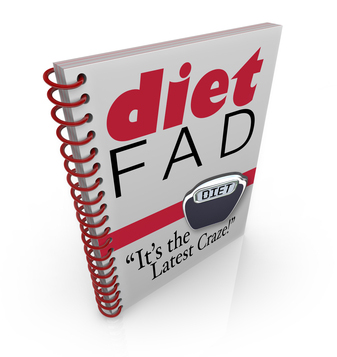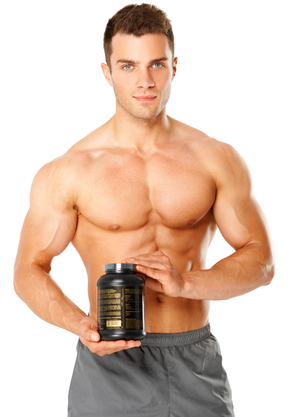The FTC Finally Targets Deceptive Advertising
Author: Dr. Stephen Chaney
 I think it was P. T. Barnum who said “There’s a Sucker Born Every Minute”. That’s particularly true in the diet world where hucksters seem to be all around us – especially this time of year.
I think it was P. T. Barnum who said “There’s a Sucker Born Every Minute”. That’s particularly true in the diet world where hucksters seem to be all around us – especially this time of year.
You’ve seen the weight loss ads touting:
- Pills or powders that suppress your appetite or magically prevent you from absorbing calories.
- Fat burners that melt the pounds away.
- New discoveries (juices, beans, foods) that make weight loss effortless.
- The one simple thing you can do that will finally banish those extra pounds forever.
You already know that most of those ads can’t be true. You don’t want to be a sucker. But, the ads are so compelling:
- Many of them quote “scientific studies” to “prove” that their product or program works.
- Their testimonials feature people just like you getting fantastic results from their program. [You can do wonders with “computer enhanced” photographs.]
- Many of those products are endorsed by well known doctors on their TV shows or blogs. [It is amazing what money can buy.]
So it is easy to ask yourself: “Could it be true?” “Could this work for me?”
Fortunately, the Federal Trade Commission (FTC) has stepped up to the plate to give you some guidance. Just in time for weight loss season, they have issued a list of seven claims that are in fact too good to be true. If you hear any of these claims, you should immediately recognize it as a fad diet and avoid it.
7 Easy Ways To Spot Fad Diets
Here are the seven statements in ads that the FTC considers as “red flags” for fad diets that should be avoided:
- Causes weight loss of two pounds or more a week for a month or more without changing your diet and exercise routine.
- Causes substantial weight loss no matter what or how much you eat.
- Causes permanent weight loss without lifestyle change even after you stop using the product.
- Blocks absorption of fat or calories to enable you to lose substantial weight.
- Safely enables you to lose more than 3 pounds per week for more than 4 weeks.
- Causes substantial weight loss for all users
- Causes substantial weight loss by wearing a product on your body or rubbing it on your skin.
I’m sure you have heard some of these claims before. You may have actually been tempted to try the products or program. You should know that the FTC said that it considers these to be “Gut Check” claims that simply can’t be true.
Operation Failed Resolution
Unfortunately, the FTC guidelines didn’t exactly make it to the front page of newspapers and blogs. They weren’t featured in the network news shows. So the FTC went one step further. In a program called “Operation Failed Resolution”, the FTC:
- Sent letters to 75 publisher and broadcasters asking them to review the FTC’s “Gut Check” claims when screening ads for publication. The implication, of course, is that the publishers and broadcasters could be held liable for false advertising if they ignored the FTC guidelines in accepting advertisements.
- On January 7, 2014 they initiated legal action against what they considered the four most outrageous weight loss claims. Those were:
Shake, Shake, Busted
Sensa, the company who’s ads claimed that you could just “shake, shake” their ‘fairy dust’ on your food and lose weight, was required to pay $26 million for unfounded weight loss claims and misleading endorsements (testimonials).
And, as for those clinical studies Sensa claimed to have had, the FTC alleged that one study was based on fabricated data, and the other two studies were equally flawed. The FTC also alleged that Sensa paid people for their testimonials.
Acai Nonsense
LeanSpa was fined $7 million for claiming that a mixture acai berry and a colon cleanse could help you lose weight. Among other things, the FTC prohibited LeanSpa from claiming that products were clinically proven to work when they are not.
Rub A Dub, Dub
L’Occitane was fined $450,000 for claiming that a skin cream called Almond Beautiful Shape would slim a person’s body “1.3 inches in just 4 weeks.”
HCG Deception
HCG Diet Direct was fined $3.2 million for claiming that human chorionic gonadotropin (HCG) plus a very low calorie diet could help you lose a pound a day. The FTC alleged that HCG had not been proven to provide any more weight loss than the low calorie diet alone. The FTC stated that HCG “has been falsely promoted for decades as a weight loss supplement.”
Don’t Wait For the FTC to Act
You probably recognize that there are a lot of other companies out there hawking similar products. There are lots of similar weight loss ads that seem just too good to be true. The FTC is watching them and will probably try to shut them down one by one. When the actions against these four companies were announced, the FTC said:
“We cannot comment on companies that either we haven’t brought an action against in the past or we aren’t announcing today, because our investigations are non-public. We do have other investigations going on in the health area, but we can’t identify the companies we’re investigating”.
The good news is that you don’t have to wait for the FTC to act. They have given you “7 Easy Ways To Spot Fad Diets”. All you need to do is to avoid diets that make those kinds of claims.
The Bottom Line
- Don’t be a sucker. Don’t fall for those enticing weight loss ads that sound too good to be true. The FTC has given you 7 simple rules for identifying the weight loss products that you should avoid, based on the claims they make. I listed those at the beginning of the article.
- The FTC has taken enforcement action against manufactures of appetite suppressants, acai berry weight loss products, HCG weight loss products and sliming creams for false advertising.
- The Director of the FTC Bureau of Consumer Protection summed up the enforcement actions by saying “The chances of being successful just by sprinkling something on your food, rubbing cream on your thighs, or using a supplement are slim to none. The science just isn’t there.
- There are no magical pills or potions that will make the pounds melt away. You need to change your diet, change your activity level and make significant lifestyle changes if you want to achieve long term weight control.
These statements have not been evaluated by the Food and Drug Administration. This information is not intended to diagnose, treat, cure or prevent any disease.

